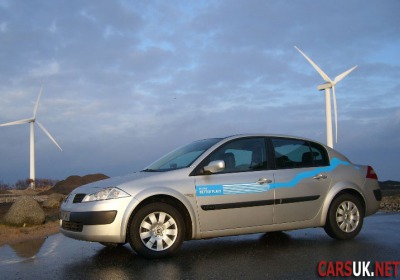Portugal commits to the Electric Car
Sun, 23 Nov 2008Renault Electric Car
[ad#ad-1]
Portugal has today committed to building 1,300 recharging stations around the country by 2011, in a deal agreed with Renault to supply Electric Cars (EV).
This is a further indication of the global rush to go green, with ‘carbon’ taxes and ‘carbon’ incentives sprouting from the desks of politicians throughout the West. But how logical is this phenomenon, and is it a fools errand, based on dubious facts’?
The concept of man-made global warming has become received wisdom. And cars have been pilloried for destroying the planet. But are we looking closely enough at the facts, or has this simply become an unstoppable bandwagon.
The High Court in the UK has banned the showing in schools of Al Gore’s global warming film, as it declared the facts were unsubstantiated. Countless scientists around the world claim man-made global warming to be nothing more than a myth. But still the bandwagon rolls on, with no thought of the economic cost if we’re wrong.
More and more scientists are now saying that the global warming we are experiencing is a natural, cyclical phenomenon. And that the rise in Co2 is simply the planet’s reaction to the warming. Extra Co2 makes plants grow more vigorously and be more immune to drought, a natural response by the Earth to global warming caused by cyclical change in solar activity.
But whether you believe the global warming theories or not, are electric cars a viable alternative? It has been estimated that the cost of just the electricity used by a very small electric car is the equivalent to 80gms of Co2 per km. Now factor in to that the cost of manufacture and disposal of the batteries on electric cars, and you end up with a Co2 figure in three digits. We already have a number of cars that achieve that comfortably. Never mind factoring in the huge carbon cost of manufacturing and running recharging stations around the globe.
So, logically, electric cars seem a fools errand. Expensive to build and no better for the climate than existing cars. In fact, if manufacturers start to build high-performance electric cars, how much Co2 will they use? And how are we going to manufacture that much extra electricity in the UK, when we’re already dependant on Europe for our electricity?
These are unpalatable truths that run counter to the headlong green rush. But maybe they should be considered more fully before we jump from the frying pan in to the fire.
By Cars UK



